813 TEMPER
TEMPER
by David Hancock
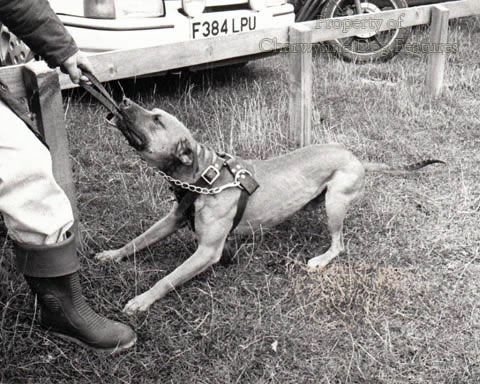
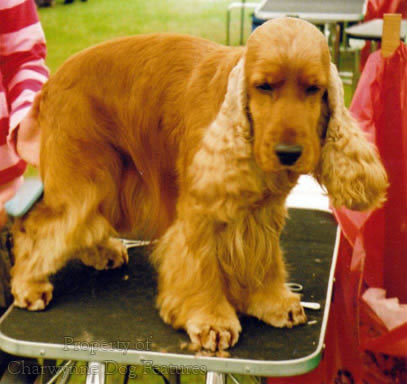
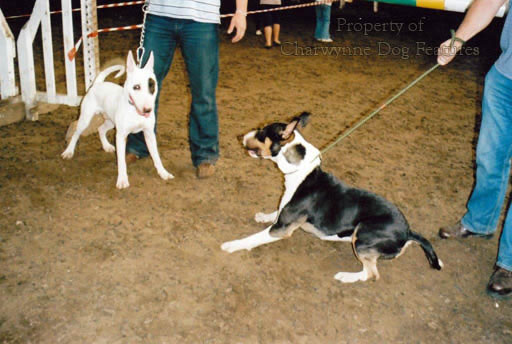 These are not easy days for the pedigree breeds in Britain. Registrations with the Kennel Club are down, some breeds are seriously affected by inherited diseases and unprecedented numbers are being processed through the various rescue organisations. The number of dogs 'going into care' each year, that is straying or being unwanted by their owners is worryingly high. A surprising feature of the annual statistics however is the number of pedigree dogs in that total.
These are not easy days for the pedigree breeds in Britain. Registrations with the Kennel Club are down, some breeds are seriously affected by inherited diseases and unprecedented numbers are being processed through the various rescue organisations. The number of dogs 'going into care' each year, that is straying or being unwanted by their owners is worryingly high. A surprising feature of the annual statistics however is the number of pedigree dogs in that total.
Statistics from the rescue organisations, not just in Britain but abroad too, reveal that the biggest single reason for a dog being re-homed is temperament, usually unwanted aggression. Research tells us that the three major causes of bad temperament in dogs are: heredity, lack of socialization/upbringing and the individual dog's own nature, in that order. What do scientists tell us about the inheritance of temperament? The American vet Whitney crossed a Bull Terrier, regarded as a natural killer and fighter, with a placid Bloodhound. He found that two of the resultant pups, raised the same as the rest of the litter, possessed suspect temperament, one having to be destroyed because of its innate aggression. Another mating between a placid Bull Terrier and a Bloodhound produced no offspring with flawed temperament. Of the fourteen pups from these two matings only two had faulty temperaments, both from the aggressive Bull Terrier bitch. 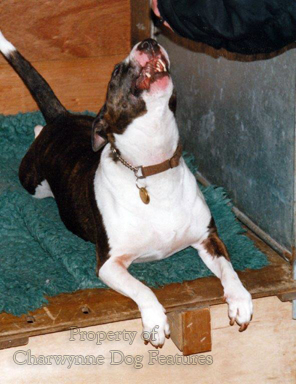
Humphrey and Warner, in their 'Working Dogs' of 1934, showed that excessive timidity, which can lead to 'fear-biting', could be bred out. Bold confident dogs with controlled dominance have been found to be less likely to bite people than excessively timid dogs. The latter should never be bred from. The experiments of Kruskinsky indicated that excessive shyness increased markedly when two shy dogs were mated to each other. Shyness is dangerously underestimated by pedigree dog breeders; it so often comes from inadequate socialization, more likely in kennel bred dogs.
The distinguished canine behaviourist Michael W Fox, in his book 'Understanding your Dog' of 1974, wrote: "Too many breeders are selecting solely for conformation, for 'showy' or 'stylish' looks, which often become distorted, mimic exaggerations of the original breed standards. Insufficient attention is paid to selecting for stable temperament and for trainability and, consequently, many breeds are becoming suburban status symbols/ornaments, not companions." The Kennel Club will ban a dog from the show circuit, if it attempts to bite the judge, and deregister it. But it does not ban other dogs from the same breeding, surely also a potential risk. 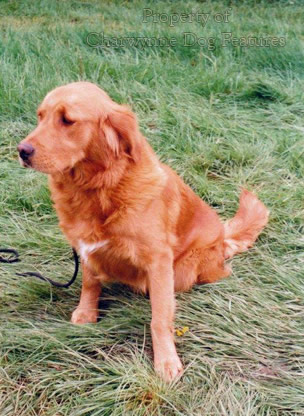
Dr. Roger Mugford, a consultant in animal behaviour, once compiled a table of his cases involving dogs with serious problems of aggression. It showed that of Britain's most popular four breeds, three topped the league for unwanted aggression; two of them were gundog breeds, the Labrador and the red-gold Cocker Spaniel. But the Golden Retriever came sixth and the Irish Setter eleventh; the Dobermann came twelfth. The savage unpredictable behaviour found in far too many golden cocker spaniels has been traced back to four show champions which were extensively bred from and their offspring exported. As Dr. Mugford has scornfully pointed out: "Very little thought is given to the physical well-being or temperamental characteristics of pedigree dogs so long as their ears point in the right direction". Much of the aggression found in dogs is rooted in fear--perhaps in humans too! 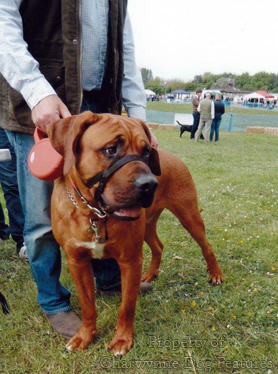
The Germans used to label such dogs on their show benches with the warning notice "Angstbeisser" or biter from anxiety. The honorary secretary of the British Veterinary Association has stated that: "If the judges at dog shows, when they see a nervy, snarly dog, no matter how beautiful, said, 'Sorry, we're not looking at him', that would be the end of it." But of course show ring judges lack the moral fibre to do just that and so "angstbeissers" win prizes and are bred from. The late Dr Malcolm Willis, the leading canine geneticist in this country (foolishly expelled from membership of the Kennel Club) has stated that "The Kennel Club could force judges to be more careful about character but they don't. When they say they can't do anything, it means they don't want to do anything." The Kennel Club expects breeders to shoulder all responsibility and impose discipline on themselves. But just as the KC needs registration fees income, breeders need puppy sales and stud-fee income. The owner of a Golden Retriever stud dog was once informed that his dog carried and transmitted an inherited disease affecting the brain; the owner lost his temper - refusing to cooperate with his own veterinary surgeon, who, quite naturally, wished to contain the disease. The veterinary surgeon is under no legal obligation to report such an incident and all this stud dog's progeny can be registered with the KC. Who is going to stop such goings-on? Temper! Temper! can be a childish fault in humans; in dogs, it means death!